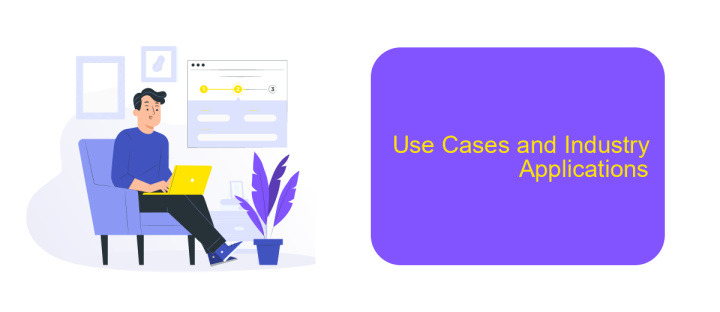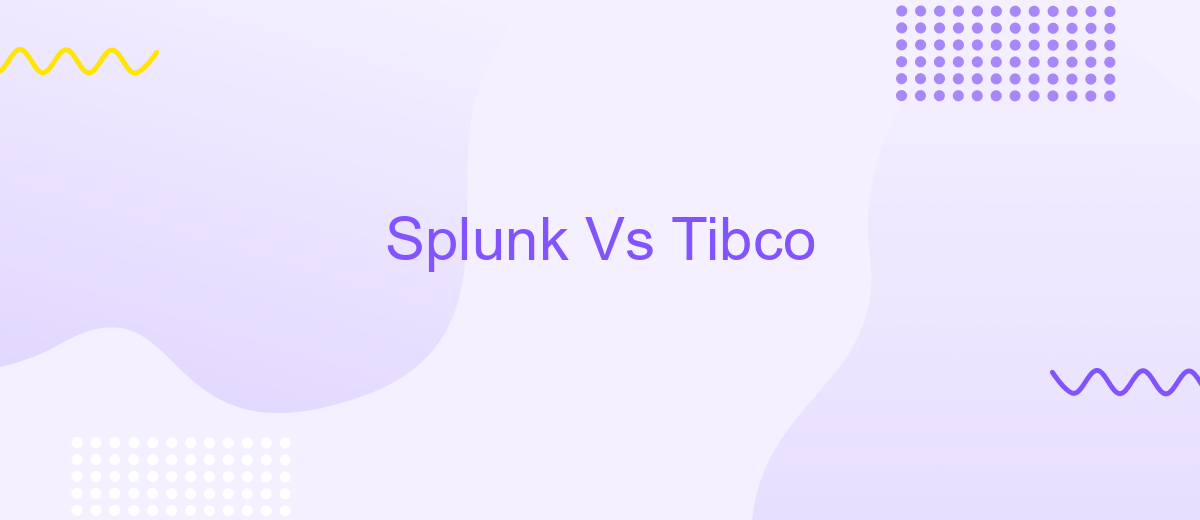Splunk Vs Tibco
In the rapidly evolving landscape of data analytics and business intelligence, choosing the right platform is crucial. This article delves into a comparative analysis of Splunk and TIBCO, two leading solutions in the market. We will explore their key features, strengths, and weaknesses to help you determine which platform best suits your organization's needs and objectives.
Splunk Overview
Splunk is a powerful platform designed for searching, monitoring, and analyzing machine-generated big data via a web-style interface. It captures, indexes, and correlates real-time data in a searchable repository, from which it can generate graphs, reports, alerts, dashboards, and visualizations. Splunk is widely used for application management, security, and compliance, as well as business and web analytics.
- Data Indexing and Searching
- Real-time Monitoring and Alerts
- Customizable Dashboards
- Machine Learning Capabilities
- Integration with various data sources
One of the key advantages of Splunk is its ability to integrate seamlessly with other tools and services, enhancing its functionality. For instance, using services like ApiX-Drive can simplify the process of connecting Splunk with various applications and data sources, enabling automated data flows and reducing manual effort. This makes Splunk an indispensable tool for organizations looking to leverage their data for actionable insights and improved operational efficiency.
Tibco Overview

Tibco is a global leader in integration, data management, and analytics solutions. It provides a comprehensive suite of tools designed to help organizations connect, unify, and manage their data across various platforms and applications. Tibco's integration solutions enable seamless connectivity between on-premise and cloud-based systems, ensuring real-time data flow and enhancing operational efficiency. The platform supports a wide range of protocols and standards, making it versatile and adaptable to different business needs.
One of the standout features of Tibco is its ability to facilitate complex integrations with minimal coding, which significantly reduces the time and effort required for deployment. For businesses looking to streamline their integration processes further, services like ApiX-Drive can be instrumental. ApiX-Drive offers a user-friendly interface for setting up integrations between various applications without extensive technical knowledge. This complements Tibco's robust capabilities, providing an even more efficient and scalable integration solution for businesses of all sizes.
Feature Comparison

When comparing Splunk and Tibco, it's important to consider their distinct features and capabilities. Both platforms offer powerful tools for data analysis and integration, but they serve different purposes and excel in various areas.
- Data Handling: Splunk is renowned for its ability to handle large volumes of machine-generated data, making it ideal for IT operations and security analytics. Tibco, on the other hand, excels in data integration and real-time analytics, which is crucial for business process management.
- Integration Capabilities: Tibco offers robust integration solutions through its Tibco Cloud Integration platform, allowing seamless data flow across different systems. Splunk also supports integrations, but for more advanced needs, services like ApiX-Drive can be used to automate and streamline these processes.
- User Interface: Splunk provides a user-friendly interface with powerful search capabilities and dashboards. Tibco's interface is also intuitive, with a focus on visual data mapping and real-time analytics.
In summary, Splunk is ideal for organizations needing extensive data analysis and security monitoring, while Tibco is better suited for businesses requiring comprehensive data integration and real-time analytics. Both platforms can be enhanced with integration services like ApiX-Drive to optimize their functionality.
Use Cases and Industry Applications

Splunk and Tibco are widely used in various industries due to their powerful data analytics and integration capabilities. Splunk excels in providing real-time insights from machine data, making it indispensable for IT operations, security, and compliance. Tibco, on the other hand, is renowned for its robust integration solutions, facilitating seamless communication between disparate systems.
Both platforms cater to a broad spectrum of use cases. Splunk is particularly effective in monitoring and diagnosing IT infrastructure issues, while Tibco is often employed in streamlining business processes through efficient data integration. These tools are crucial in industries like finance, healthcare, and telecommunications, where data-driven decision-making is paramount.
- Finance: Risk management, fraud detection, and transaction monitoring.
- Healthcare: Patient data analysis, operational efficiency, and regulatory compliance.
- Telecommunications: Network performance monitoring, customer experience management, and service optimization.
For businesses looking to enhance their integration capabilities, services like ApiX-Drive can be invaluable. ApiX-Drive simplifies the process of connecting various applications and automating workflows, ensuring that data flows seamlessly across systems. By leveraging such services, companies can maximize the benefits of both Splunk and Tibco, driving operational efficiency and innovation.
Market Share and Customer Feedback
Splunk and Tibco are both prominent players in the data analytics and integration market. Splunk has a significant market share, particularly in sectors like IT operations, security, and compliance. Its user-friendly interface and powerful search capabilities have made it a favorite among enterprises looking to gain insights from their machine data. On the other hand, Tibco, known for its robust integration and analytics solutions, holds a strong position in industries such as finance, healthcare, and manufacturing. Tibco's ability to handle complex data integration scenarios gives it an edge in environments requiring seamless data flow and real-time analytics.
Customer feedback for Splunk often highlights its ease of use, scalability, and comprehensive documentation. Users appreciate the platform's ability to quickly ingest and analyze large volumes of data. Tibco receives praise for its flexibility and powerful integration capabilities, allowing businesses to connect disparate systems efficiently. Services like ApiX-Drive can further enhance the integration process for both platforms, offering automated workflows and seamless data transfer between various applications. This added layer of automation can significantly improve operational efficiency and data accuracy for businesses utilizing Splunk or Tibco.
FAQ
What are the primary use cases for Splunk and Tibco?
How do Splunk and Tibco handle data integration?
Which platform is better for real-time analytics?
Can Splunk and Tibco be used together?
What are the options for automating integration and data flow between Splunk and Tibco?
Time is the most valuable resource in today's business realities. By eliminating the routine from work processes, you will get more opportunities to implement the most daring plans and ideas. Choose – you can continue to waste time, money and nerves on inefficient solutions, or you can use ApiX-Drive, automating work processes and achieving results with minimal investment of money, effort and human resources.

